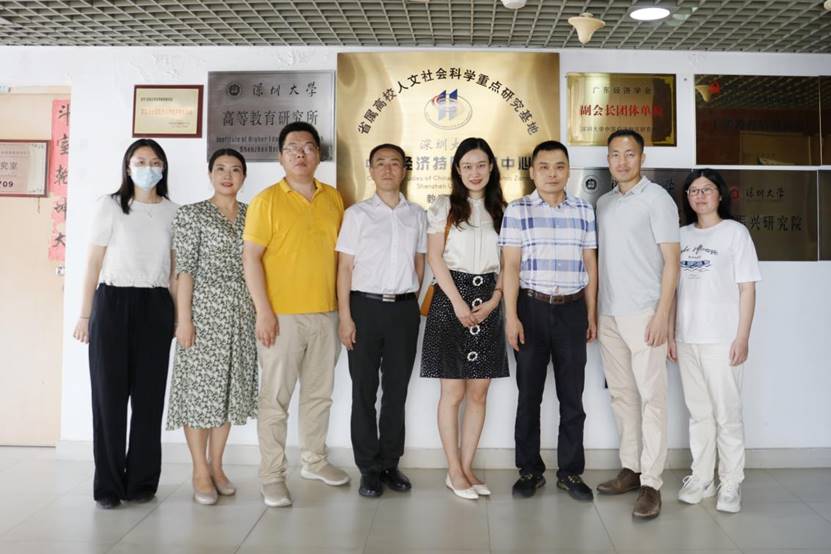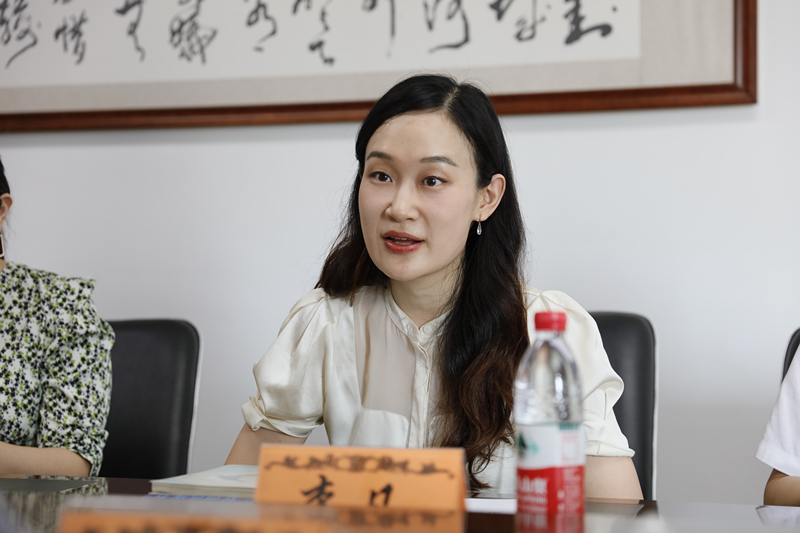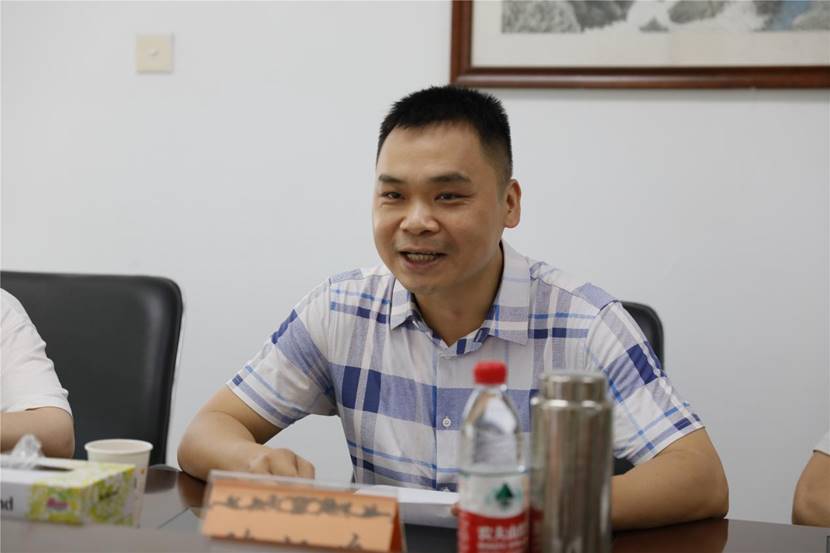On the morning of May 31, 2023, Chen Xuming, Level II Division Rank Official, Liang Chunhui, Division Chief, and Lin Xiaoyu, Level III Principal Staff Member of Shenzhen "high-quality development project of hundreds of counties, thousands of towns and thousands of villages" (the "Townships Development Project") policy research group and command center office visited Rural Revitalization Research Institute (RRRI), Shenzhen University (SZU). Attending the meeting were Prof. Li Fan, President of RRRI and Deputy Director of CCSEZR, Prof. Mi Xuming, College of Economics, Prof. Qin Quande, College of Management, and Assistant Prof. Ma Limei of CCSEZR.

President Li Fan welcomed Director Chen Xuming and his delegation, and introduced the founding background, main research fields and research progress of RRRI. Adopting a differentiated development strategy, with economics as its theoretical basis, CCSEZR centered on digital villages and industry revitalization, and leveraged its strengths and characteristics of Shenzhen City and SZU. During the meeting, President Li Fan also put forward the thought of building a rural revitalization evaluation system with joint hands and publishing a series of books to summarize the development experience, share cutting-edge research results, and promote positive values for rural revitalization and the construction of the "Townships Development Project".

Division Chief Liang Chunhui explained that the Guangdong Provincial Party Committee adopted the implementation of the "high-quality development project of hundreds of counties, thousands of towns and thousands of villages" to promote the coordinated development of urban and rural areas in December 2022, and set up a command center and five working groups for county economy, urban construction, rural revitalization, elements protection and decision-making and consultancy, promoting the high-quality development of the counties, towns and villages. It is expected that the visit of the research group can build ties with RRRI and obtain intellectual support from university think tanks to mastermind a scheme for the "Townships Development Project" of Shenzhen.

Prof. Qin Quande, from the perspective of branding of agricultural products, modernization of agriculture and rural ecological protection, Prof. Mi Xuming, from urban and rural element mobility, rural talent skill improvement, and strong agricultural province building, and Assistant Prof. Ma Limei, from arrangement technique improvement for plant growth and agriculture empowered by science and technology, shared views respectively and illustrated the theories and practices of rural revitalization strategies.
Chen Xuming shared his eight-year experience of working in villages across Guangdong Province, suggesting that the development of counties, villages and towns in Guangdong should strengthen the mutual complementation of urban and rural areas and accelerate the transformation and application of scientific and technological achievements in agriculture. He made it clear that agriculture is crucial to the people's well-being. Banking on the Guangdong-Hong Kong-Macao Greater Bay Area market, agriculture in Guangdong Province has a bright and promising future. The research direction of RRRI is in line with that of the “Townships Development Project” policy research group. Both sides are expected to, based on the actual rural situation, facilitate the implementation of the Project shoulder-to-shoulder with cutting-edge academic research.

To further study and implement the spirit of the 20th CPC National Congress, the “Townships Development Project” aimed at promoting urban-rural integration and regional coordinated development. It is an urgent strategic measure to break the urban-rural binary structure and smooth the economic cycle. The visit of the research group has laid a solid foundation for future cooperation. As the university think-tank, RRRI will be proactive in advocating coordinated development of urban and rural areas.



